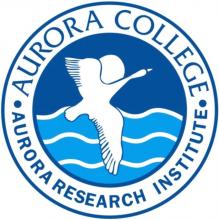2014-ongoing Spatial Traditional Knowledge Compilation
This project is part of the Wildlife, Habitat and Harvesting program funded by the Environmental Studies Research Fund. The objective of this work is to address a gap identified in early work on the Spatial State of Knowledge project: the accessibility of previously recorded harvester knowledge to the community and regional organizations mandated to manage resources in the Sahtú Settlement Region. This includes key place names, ecological knowledge, and land use projects and datasets which define the harvesting landscape. These projects, the existence of which may or may not be common knowledge among decision-making organizations, include documentation of harvester knowledge, knowledge of changes in habitat (both natural and due to earlier exploration and development activities in the study area), and other socio-ecologic topics. Often, the work has been topical, centering on place names, family biographies, characterizing caribou populations and biodiversity, and describing long term changes in ecology and harvesting practices.
As traditionally named places in Dene languages are the framework upon which other types of spatially-oriented, ecological, and traditional use information are structured, this project will bring together little known and recently re-discovered place names datasets, along with more recent place names work. The names will be assessed through working with linguist(s), and verified with knowledgeable Elders and land-users. Gaps in existing names and required changes will be assessed through engagement.
As place names are extremely important as a baseline ecological dataset, and were identified as a gap in early Spatial State of Knowledge work, this project will address this gap and directly increase the available socio-ecological information to regional and community organizations for assessing development.
Team Members
-
Heidi Brown, GIS Researcher
- Kristi Benson, GIS Researcher
- Joe Hanlon, Ɂehdzo Got’ı̨nę Gots’ę́ Nákedı
- Deborah Simmons, Ɂehdzo Got’ı̨nę Gots’ę́ Nákedı
Funders
Environmental Studies Research Fund, Environment and Natural Resources - GNWT
Total Budget
$50,000





 Phone: 867-374-4040
Phone: 867-374-4040 Email:
Email: